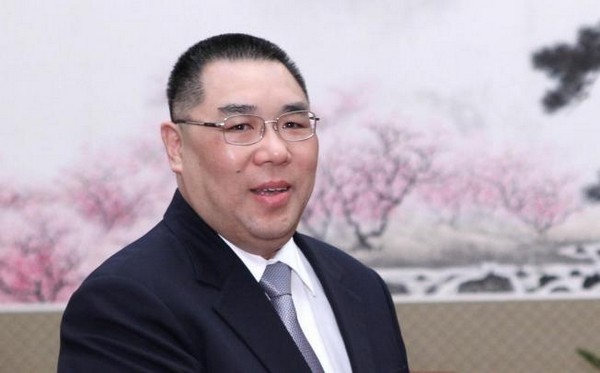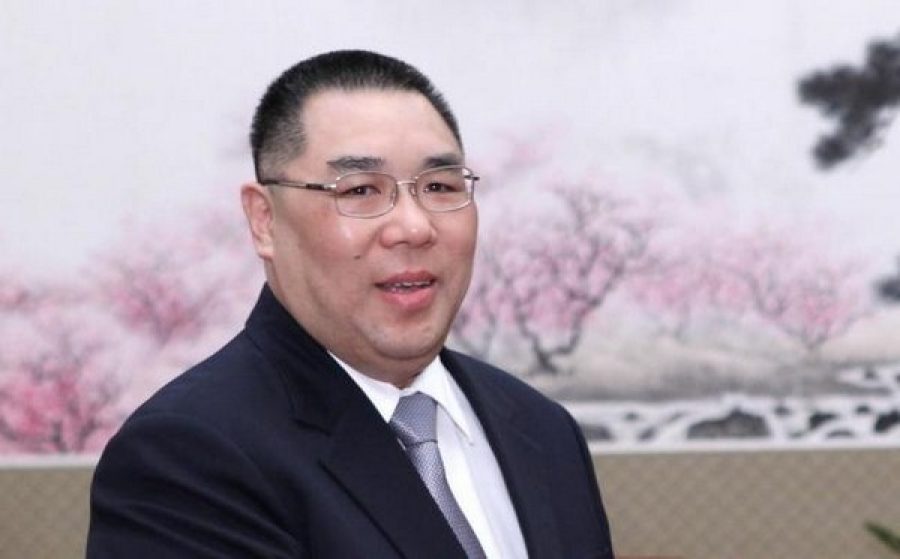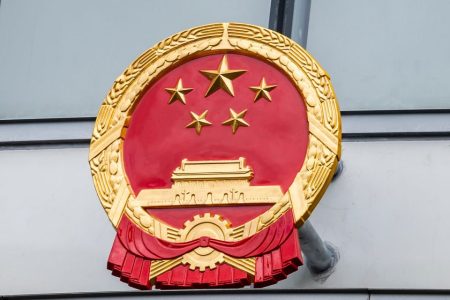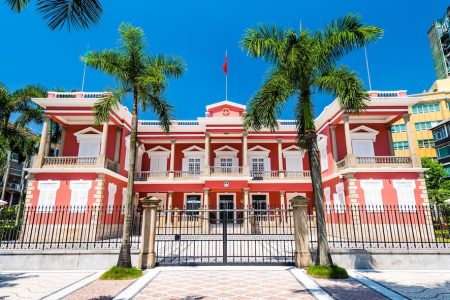Chief Executive Fernando Chui Sai On said Monday that the possible granting of work permits to local universities’ non-local graduates would only be a stop-gap solution meant to tackle the city’s human resources shortage in certain sectors and would not grant them the right of abode.
Most non-local tertiary education students are from the mainland.
Chui also was quoted by The Macau Post Daily as saying that the issue was still being studied by the government’s Policy Research Office (GEP) within the ambit of its overall population policies.
The chief executive made the remarks on the sidelines of the opening ceremony of the Macau-Inner Mongolia Economic and Trade Co-operation Week at the Venetian in Cotai.
Responding to reporters’ questions about the issue, which has been met with a mixed bag of views, Chui said that Macau was likely to hit a severe lack of qualified staff in the near future, namely in 2016 when a string of large projects are slated to become operational.
He said that any decision by the government would first of all protect local residents’ employment opportunities, based on “the principle of pragmatism” and “the real needs of Macau.”
Chui also said the government would only consider granting work permits to some of the non-local graduates of the city’s institutions of higher learning if there was a “major lack of qualified human resources in some sectors.” He insisted that this did not mean that all the non-local graduates would be given the right to seek employment in Macau, adding that the possible policy would anyway only be implemented as a stop-gap measure that moreover would not entail any residency rights.
Chui also said that the government’s employment and population policies continued to be aimed at improving locals’ living conditions and ensure the city’s sustainable development.
The chief executive also said that the existing laws and rules on the granting of residency rights to high-calibre investors and “highly qualified” professionals would continue normally.
However, he pointed out that the city’s business and labour sectors have urged the government to amend the Labour Relations Law. He promised that the government would approach the law’s revision “in a realistic way.”
Meanwhile, the Statistics and Census Bureau (DSEC) said yesterday that the city’s estimated unemployment rate stood unchanged at 1.9 percent in the February-April survey period in comparison with the previous period (January-March).
The rate has remained unchanged since the November 2012-January 2013 survey period. The three-month survey period is updated every month.
Compared with the same period of last year, the rate was down 0.1 percentage points in the February-April survey period.
Macau’s total labour force stood at 359,400 in the latest survey period, when the labour force participation rate amounted to 71.8 percent.
Total employment reached 352,400, an increase of 600 from the previous period. While employment in the gaming and retail sectors increased, the number of restaurant jobs decreased.
The number of unemployed stood at 7,000, an increase of 200 from the previous period. Fresh labour force entrants looking for their first job accounted for 4.2 percent of the total number of unemployed, down by two percentage points.
According to the Human Resources Office (GRH), Macau had 115,601 imported workers at the end of April. The number included 69,708 mainlanders, 17,148 Filipinos, 10,735 Vietnamese, 5,388 Hong Kong citizens, 4,228 Indonesians, 2,537 Nepalese and 1,021 Thais.
Imported workers – officially termed “non-resident workers” – accounted for nearly a third of the city’s total workforce in April.(macaunews)






